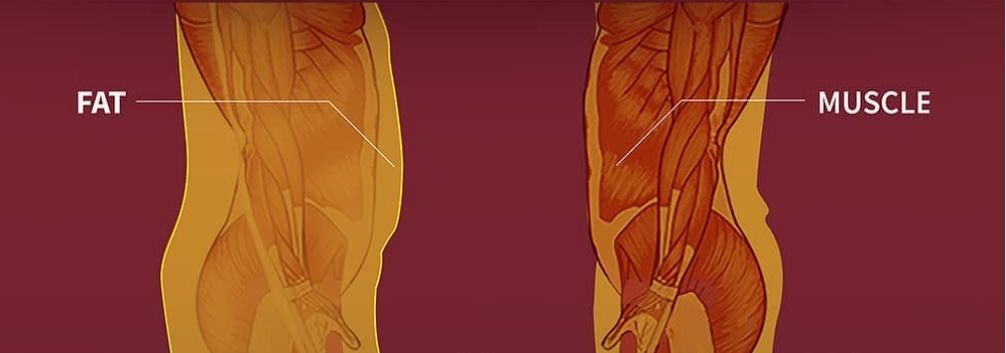
To maintain optimal health, achieving the right balance between the amount of muscle mass and body mass is vital. A high level of body fat increases the likelihood of suffering from various ailments including the heart condition type two diabetes and some types of cancer. But, maintaining a healthy quantity of muscle mass can increase bone density and enhance the general performance of your body.
Understanding Body Composition Before embarking on strategies to improve muscle strength as well as reduce fat, you need to understand the concept of the body’s composition. Body composition refers to the various parts of the amount of weight your body carries. It includes muscles, fat, and bone. Although BMI machine is the most frequently measured measurement, it doesn’t differentiate between muscle and fat which makes it a poor indicator of your overall health.
Examining your body’s composition precisely will provide important data about your physical health and help you move toward achieving your fitness goals. There are numerous methods to determine the body’s weight, for instance, skinfold calipers as well as bioelectrical impedance assessment (BIA).
Maximizing Muscle mass Building as well as maintaining muscle mass is essential to your overall longevity and overall health. Here are some suggestions to increase the strength of your muscles:
- Strength Training: Incorporate resistance exercises in your workout routine, such as weightlifting, resistance bands, or bodyweight exercises to help you resist. The process of causing your muscles to perform harder using resistance will boost growth and assist in helping strengthen muscles.

- Protein Intake: Ensure you consume enough protein to support the development of muscles and to help repair. Protein-rich food items that are great sources are lean meats, eggs fish, eggs, eggs legumes dairy products, as well as supplements for protein.

- Relaxation and recovery: Allow your muscles time to recover between exercises. Rest and sleep are vital to the growth and recovery of your muscles.

Eliminating Body Fat. While certain fats in your body are necessary to stay healthy, too much fat can lead to a myriad of health issues. Here are some suggestions to cut down on body fat
- Calorie Deficit To reduce body fat, it is necessary to create a deficit in calories. This is done by eating fewer calories than the body’s needs. It is crucial to keep your calories to a minimal amount because this could lead to loss of muscle mass and a slowing of metabolism.
- A combination of high-intensity cardio as well as Interval exercise (HIIT) Incorporate exercise that incorporates HIIT and cardio within your routine to help you burn calories and boost the rate of metabolism. Exercises that combine HIIT are short periods of intense training, with recuperation periods, which are particularly efficient in losing weight.
- Stress Management Continuous stress can lead to increased levels of cortisol. This can lead to an increase in abdominal fat. Use stress-management strategies such as meditation, yoga and meditation and deep breathing exercises.
- A restful night’s sleep Sleeping well is vital to regulate the production of hormones that regulate metabolic rate and appetite. It is recommended to get between 7 and 9 hours of sleep every night.
Assisting in achieving work to the highest quality of health by increasing muscle strength and reducing the amount of fat you consume is a multi-faceted plan of action that combines a healthy and well-balanced food plan with consistent exercise as well as other aspects of your lifestyle. This is an example of a well-balanced strategy:
- Strength Training: Perform resistance training at least three times each week, using the most important muscles.
- Cardiovascular Exercise: Incorporate 150-300 minutes of moderate-intensity aerobics or 75-150 minutes of high-intensity aerobics each week, along with one or two HIIT workouts.
- Balanced Diet: Eat a well-balanced diet that is rich in lean proteins, high in fiber-rich carbohydrates as well as healthy fats, and many varieties of fruits and vegetables. Calculate your daily calorie needs by your objectives along with the intensity and duration of your work.
- Hydration Drink plenty of water throughout the day to maintain general health and improve metabolic function.
- Rest and recovery: Aim to get 7-9 hours of good quality sleep every night. take time to allow for adequate recuperation and rest between workouts.
- Stress Management: Perform exercises that reduce stress such as yoga, meditation, or regular breath exercises.
Be aware that getting to your optimal health state is a process, and it requires patience and dedication. Regularly monitoring your body’s composition can provide useful information on your progress and will help to make any adjustments necessary to your regimen.
Focusing on the development of your muscles as well as weight loss is responsible and using an effective holistic plan, will improve your well-being, increase your fitness level, and improve your general quality of life.

Leave a Reply